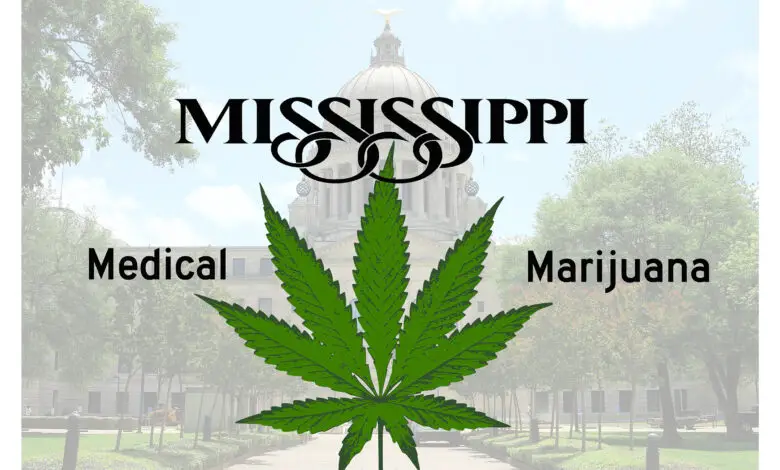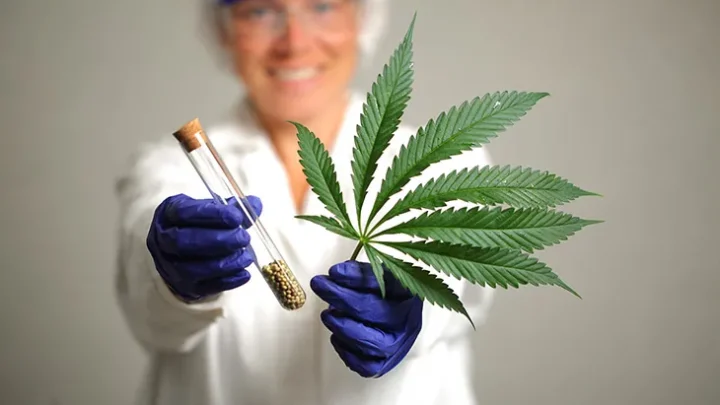Is Medical Marijuana Legalized in Mississippi? 6 Things to Know

Since November 2020, Mississippi has been another state that has legalized the use of cannabis for medical purposes. Understandably, the bill is very consistent with the one passed by other states, but like with most bills, there are certain differences that might confuse people. That is why, before applying for this program, make sure to read this guideline for detailed information.
Qualifying for the program
Like with most things regarding obtaining medical marijuana, in order to be eligible to apply and qualify for the program in Mississippi, you need to meet certain criteria. Simply put, the medical condition upon which they seek this type of treatment needs to be on the list of conditions where medical marijuana can actually be prescribed. Besides that, before they can buy and enjoy all the benefits of this type of treatment, they also need to possess a written certification from the healthcare practitioner. Once patients have all the necessary paperwork, they also need to apply for a registration card issued by the health department (MDOH).
Since the bill that passed referring to the legalization of marijuana being used for medical purposes in Mississippi is still relatively new (the bill passed in 2020), obtaining the card still troubles some people. Luckily, there are many ways to do so, and in most cases, the waiting period is pretty short. The good thing is that one can do everything in person or apply online for this medical marijuana card in Mississippi, which is, in most cases, the easiest and fastest way to get this card.
Practitioners

As you already know, it’s not like just any medical practitioner can write a prescription, as they need a special license to do so. Namely, they, too, have to meet certain criteria in order to get a permit for such actions, so before taking any actions, make sure to check whether the medical practitioner you go to can prescribe medical marijuana. As for who can get such a permit and certification, the good thing is that this is not reserved just for doctors. Namely, besides doctors, nurses, physicians, and optometrists can also sign a written certification for conditions, but only for those conditions within their scope of practice for medical marijuana.
The rules
Medical practitioners can only prescribe medical cannabis in cases when they believe the patient will benefit from such treatment after a thorough assessment of the patient. This means that if you go to a physician, they can prescribe this treatment only for conditions they have expertise with, which is pretty understandable.
Treatment doesn’t last forever
In most cases, this prescription comes with an ‘expiration date,’ meaning that certified medical practitioners who have issued you a certificate for medical use of cannabis will usually schedule a follow-up exam within several months to check and evaluate the effectiveness of the treatment.
Minors
Since protecting minors is the goal, signing written certifications for minors is something that’s reserved just for DOs and MDs. This process is meant to protect minors as only those with high expertise can sign this type of treatment for them after diagnosing the patient with the qualifying condition. This is done via forms issued and approved by MDOH.
Limitations
The amount of medical cannabis one can purchase is limited, and there are strict guidelines on how much one can get in a certain amount of time. Understandably, this mostly depends on the patient’s medical condition, which makes them eligible for this type of treatment. That is why it’s not the same amount prescribed for those dealing with cancer and those with some chronic disease.
Another important fact to know is that the maximum amount of MCEU (medical cannabis equivalency unit) one can get within a week is six. This means that you cannot expect to get more than 24 MCEUs within a month. As for how much medical cannabis MCEU stands for, it’s approximately 100 mg of THC in infused products, not more than one gram of concentrate, and 3.5 grams of flowers.
The law

Many people believe that once marijuana gets legalized in their home state, it will be legalized in every form, and there are no limitations for using it, but that’s just wrong. Namely, every state that has legalized medical marijuana has many limitations regarding not just how one can obtain the permit to buy medical cannabis but where and when they can use it as well, and the same goes for Mississippi.
For starters, consuming cannabis in public is strictly prohibited because of various reasons, and you cannot consume it in a motor vehicle. You can buy it only from registered and certified stores, which are strictly monitored and have and follow many rules and procedures regarding how, when, and how much medical cannabis they can sell to certified patients. This also means that growing cannabis in your home is still highly illegal, and it’s not something that this bill that passed almost four years ago is for.
Driving under the influence is also punishable by the law, and even though it’s medically prescribed, if one consumes medical cannabis, operating any vehicle is strictly prohibited. There are many tests for drivers that can easily check this, so do not use cannabis and drive. In order for minors to qualify for this type of treatment, they need their parent’s or guardian’s consent.
Insurance-wise, it’s not likely that your healthcare program covers these costs, so don’t expect to buy medical cannabis for free or just with a prescription. Also, in order to protect people who still oppose this medically approved treatment, the state has passed a bill that clearly states that landlords can, if they want, prohibit the use of medical cannabis at home for their tenants.
Business limitations

Besides certain limitations regarding buying and using medical cannabis for patients, there are also limitations and rules that businesses need to follow. Namely, they must be in compliance with the local zoning requirements, and they also have to pay a fee of a certain amount that is the same for other types of businesses. There are also some other limitations, but these two are the most important ones.

